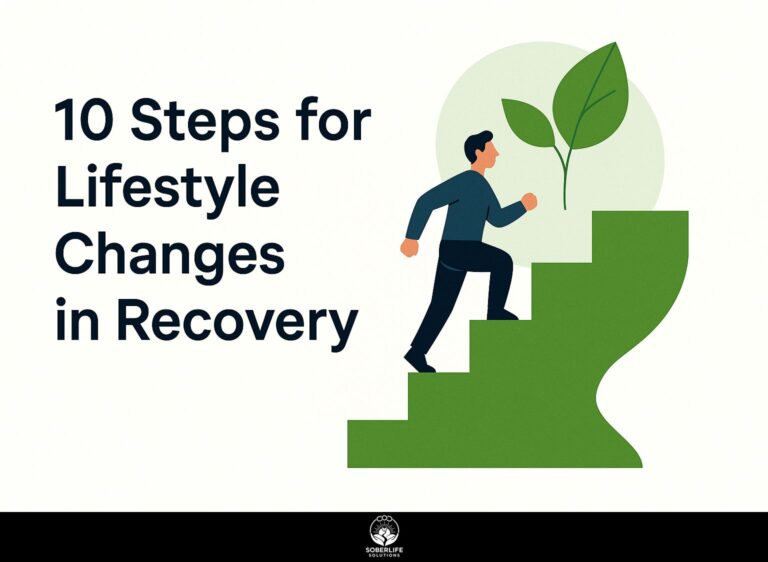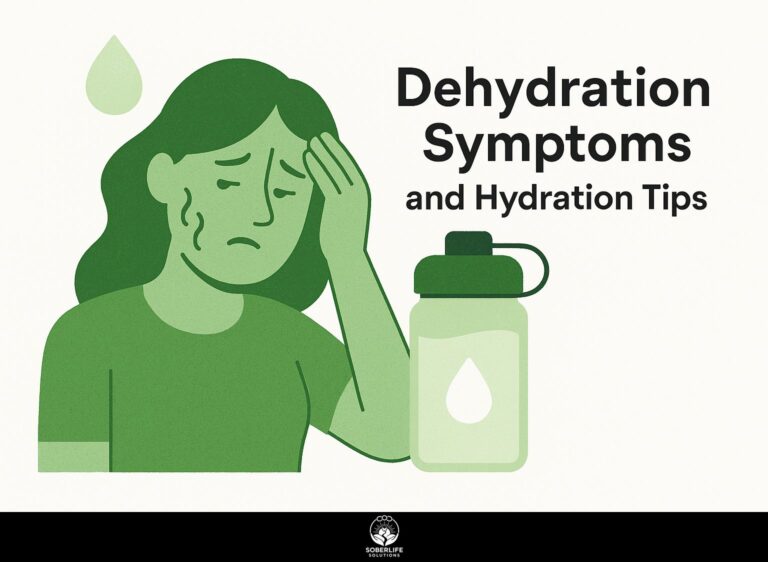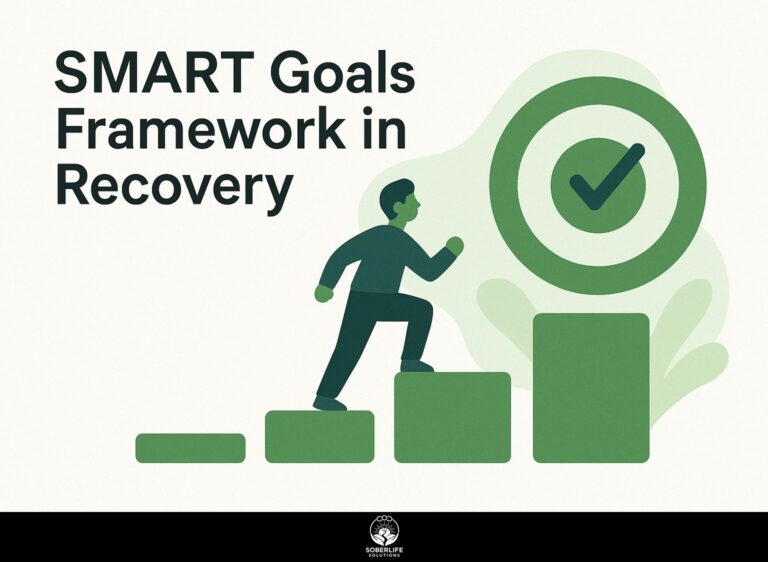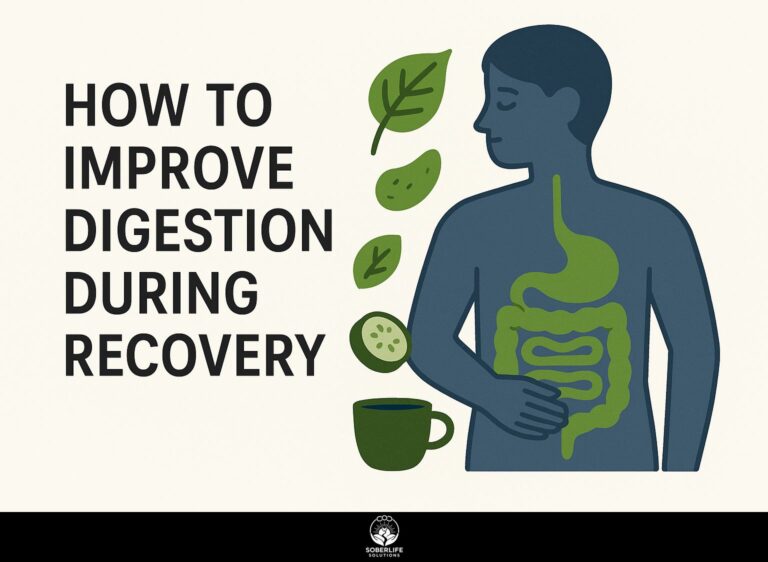How to Help Others in Alcoholism Recovery
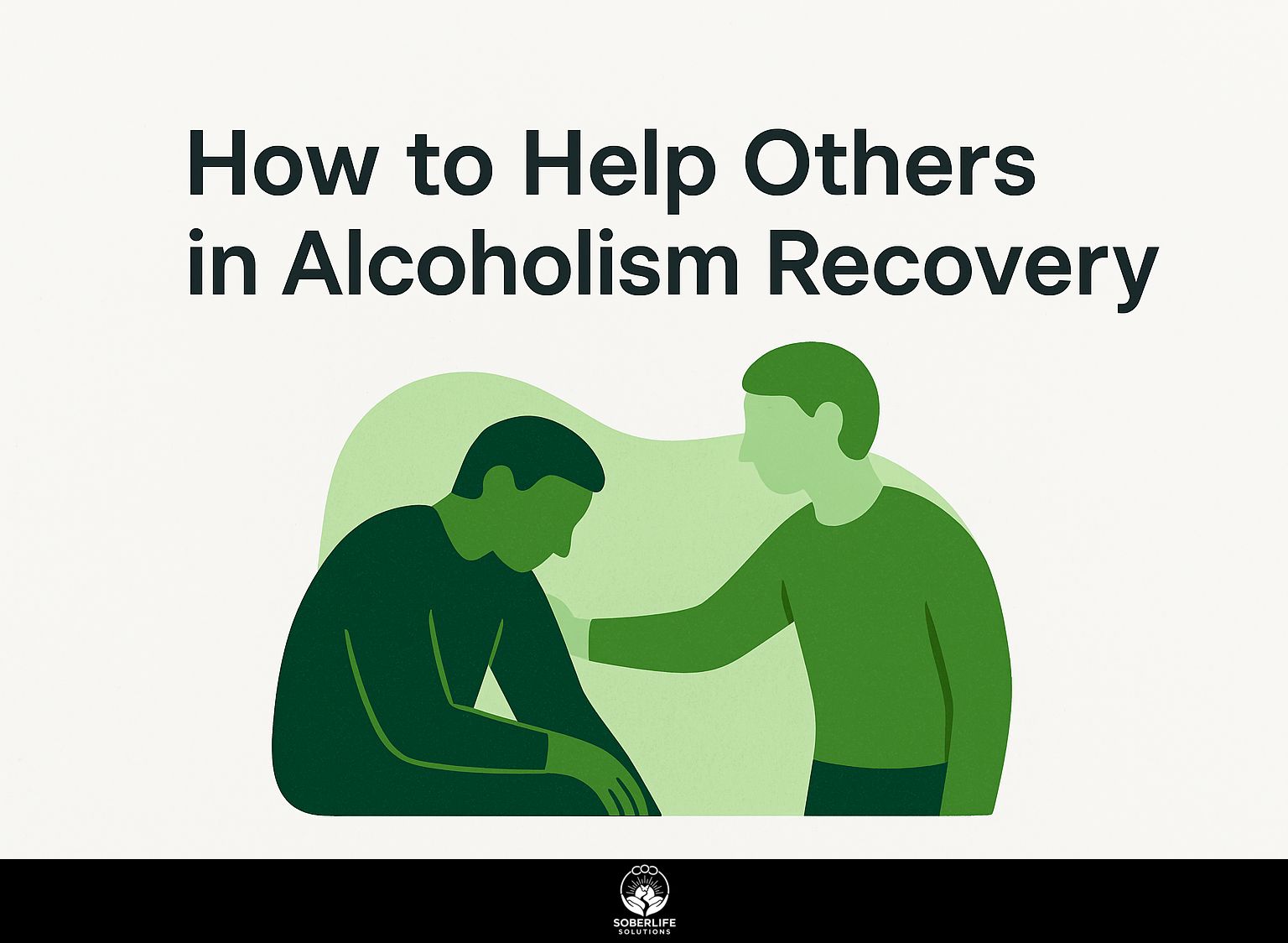
Helping someone recover from addiction can deeply change lives, particularly when dealing with Alcohol Use Disorder. With knowledge from experts such as Bianca Munce at Riverside Mental Health & Recovery Center, this article will show you how to help people dealing with substance use disorders. You’ll find practical steps to promote professional help and create a supportive environment to help your loved ones succeed in their recovery.
Key Takeaways:
Understanding Alcoholism
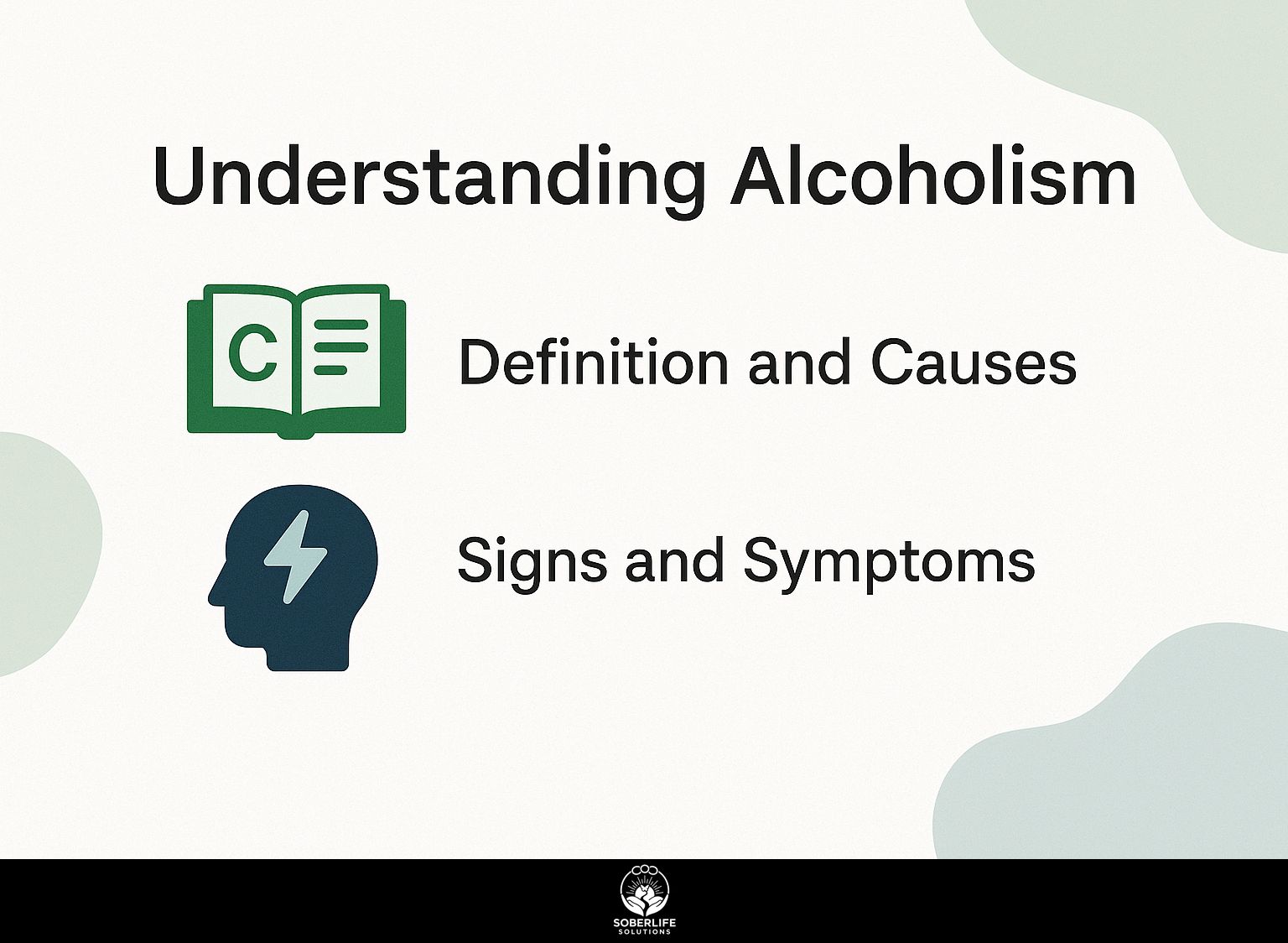
Alcoholism is a long-lasting illness where a person can’t manage their alcohol consumption, which often results in serious physical and mental problems. Effective coping mechanisms can be crucial in managing these challenges, with numerous strategies contributing significantly to recovery. For those seeking detailed approaches, understanding strategies for alcoholism recovery is beneficial.
Definition and Causes
Alcohol use disorder, often termed alcoholism, can stem from various factors including genetic predisposition, psychological changes, and environmental influences.
Research indicates that genetic factors play a significant role, with individuals having a family history of addiction being up to four times more likely to develop alcoholism themselves. This aligns with insights from Healthline, which explores the genetic connection to alcoholism in depth.
Psychological issues, such as anxiety or depression, can heighten the risk, as individuals may turn to alcohol for relief. Environmental triggers, like living in a social circle that normalizes drinking, exacerbate these tendencies.
A study published in the American Journal of Psychiatry outlines how genetic predisposition interacts with these psychological and environmental factors, reinforcing the complexity of alcohol use disorder.
Signs and Symptoms
Spotting alcoholism early is important. Common signs are needing more alcohol to feel the same effects, experiencing withdrawal symptoms, and ignoring duties.
Notably, those struggling with alcoholism may demonstrate key signs such as drinking more than they initially intended, experiencing withdrawal symptoms like anxiety or tremors, and prioritizing alcohol over family or work obligations.
Real-life examples include:
- Someone who regularly skips social events unless alcohol is served.
- A professional who finds themselves late to work due to drinking the night before.
By noticing these signs, people can get help earlier, which can lead to improved recovery over time.
Supporting Recovery
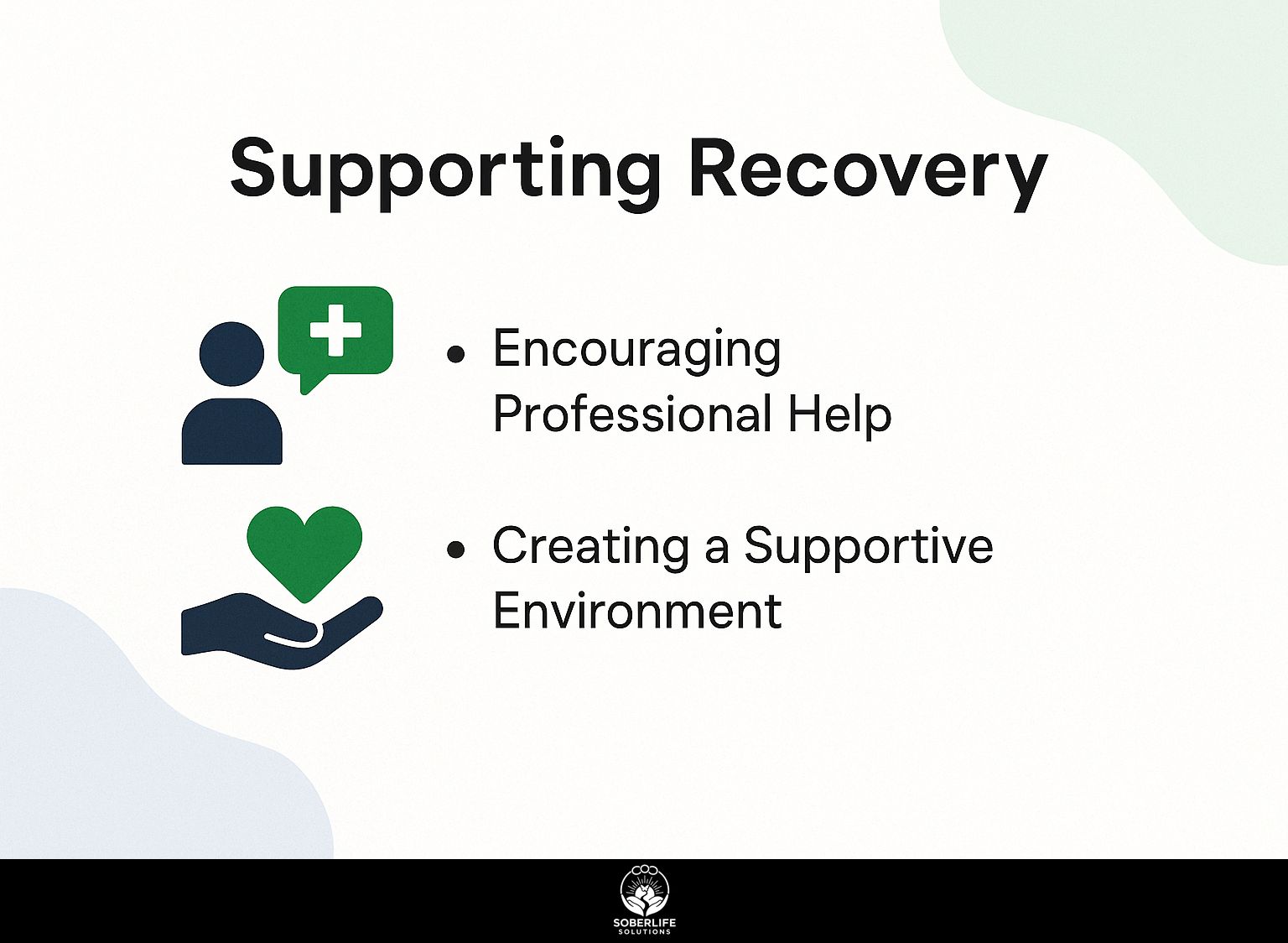
Supporting someone’s recovery uses different approaches, emphasizing the importance of getting help from experts and having a supportive setting. One notable aspect is the critical role of various therapies in the process-our comprehensive overview on therapies for alcoholism demonstrates their techniques and benefits.
Encouraging Professional Help
Encouraging someone close to you to get professional help is important; useful methods include sharing details and offering support.
One effective approach is to research local rehabilitation services together, such as the Riverside Mental Health & Recovery Center. Offer to accompany them to their first appointment, which can alleviate anxiety about the unknown.
Employ motivational interviewing techniques by expressing your concerns gently, using phrases like, “I’m worried about you and think talking to someone could help.”
To find local resources, use the SAMHSA treatment locator. According to information provided by the SAMHSA website, it offers a detailed list of mental health services suitable for different needs.
Creating a Supportive Environment
A caring environment can greatly improve recovery rates by creating a feeling of safety and belonging.
To build this environment, start by creating a sober living space free of triggers. Limit exposure to alcohol in social settings to reduce temptation.
Think about joining support groups like SMART Recovery that provide assistance to deal with difficulties and strengthen your coping skills. Set up routine meetings to talk about emotions and experiences, supporting open communication and acknowledging feelings.
Celebrate small victories, such as a week of sobriety, reinforcing positive behavior.
For example, a family used these methods successfully, which greatly reduced stress and helped them become closer during recovery.
Effective Communication
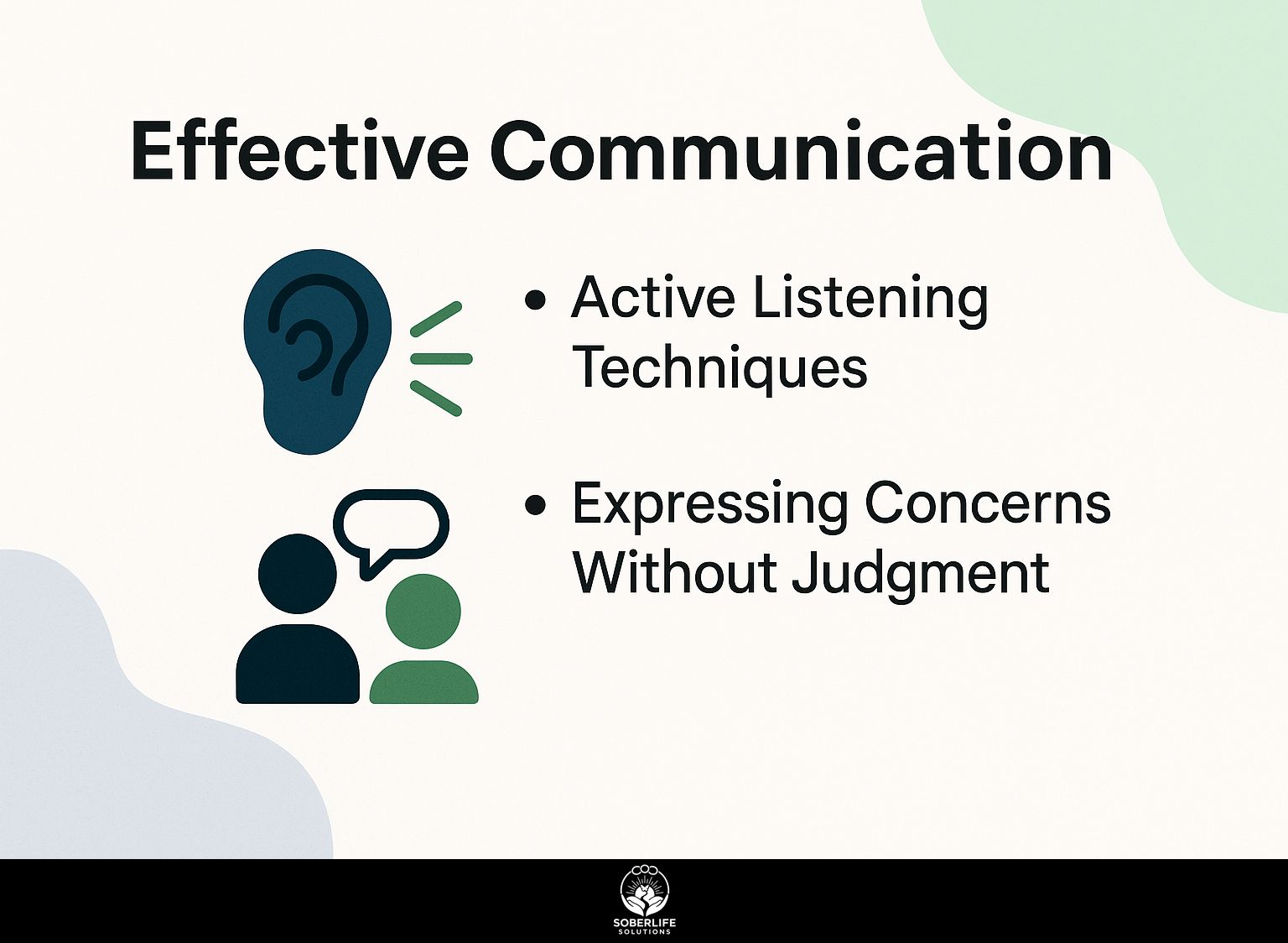
Good communication is important in helping people dealing with addiction, allowing for honest conversation and building awareness.
Active Listening Techniques
Listening carefully can improve conversations with loved ones in recovery, helping them feel understood and supported.
Using some important methods can greatly improve how well you listen actively.
Maintain eye contact to show engagement; for instance, nodding while the person speaks can reinforce your attentiveness. Reflect back their feelings by saying, ‘It sounds like you’re feeling overwhelmed,’ which demonstrates empathy.
Steer clear of interrupting to create a space where they can share their thoughts openly.
Ask questions like, ‘What has been the hardest part of your day?’ This encourages detailed responses and strengthens your connection during these important talks.
Expressing Concerns Without Judgment
Expressing concerns about a loved one’s drinking habits needs a careful, non-judgmental approach, which can open doors to meaningful discussions.
Begin by using ‘I’ statements to express personal feelings; for instance, say, “I feel worried when I see you drinking more often during the week.” Avoid blame by refraining from direct accusations.
Focus on particular actions, such as, “I’ve noticed that you have been drinking more recently.” It’s important to be caring; recognize their emotions with something like, “I realize that you might be dealing with stress.”
Say, “How can I help you through this?” This way, you start a positive conversation.
Participating in Recovery Programs
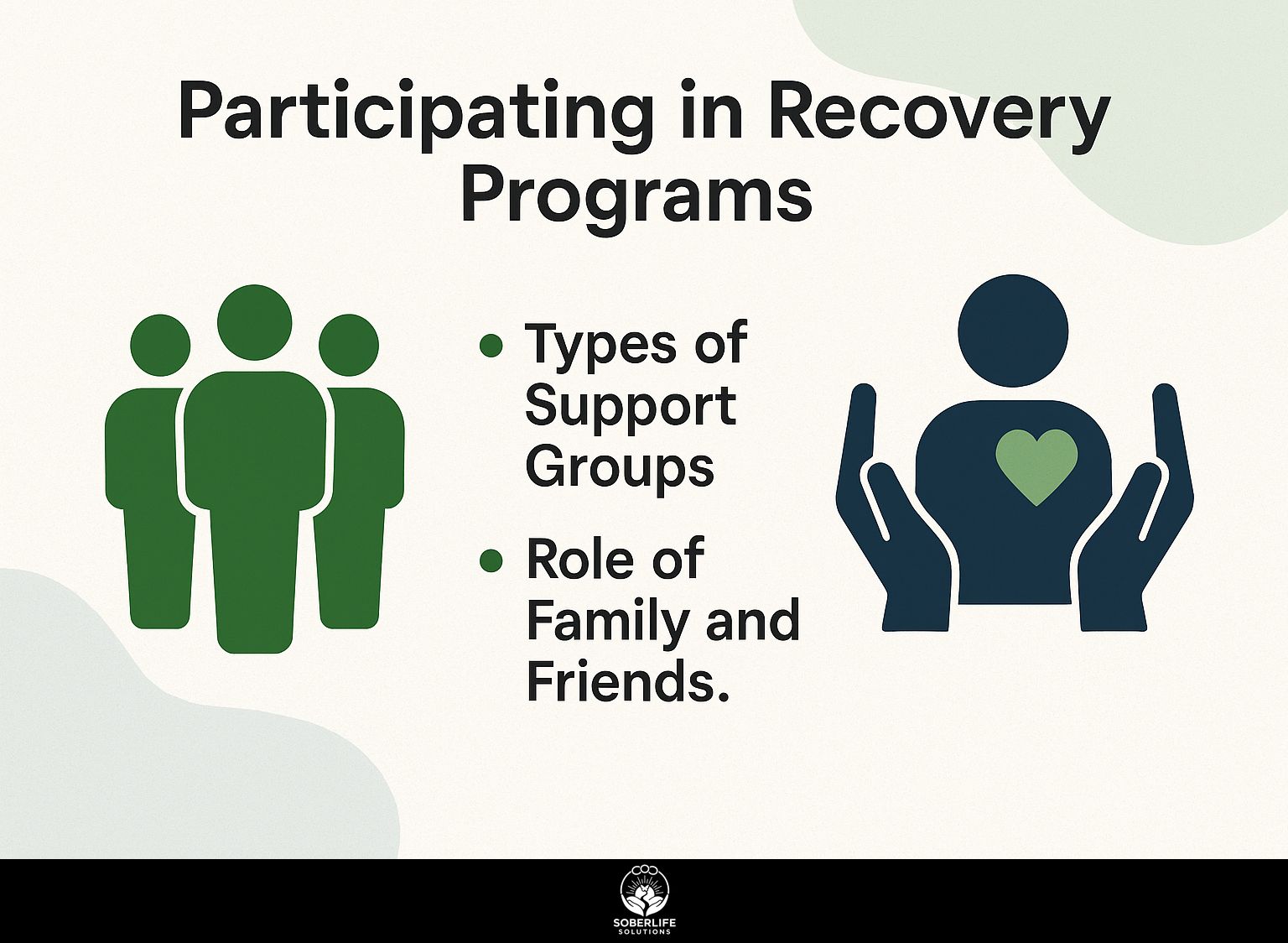
Joining recovery programs builds support networks and offers people important resources and a community. For an extensive analysis of how these groups foster connection, our comprehensive study on sober support systems delves into effective practices and their benefits.
Types of Support Groups
You can join support groups like Alcoholics Anonymous or SMART Recovery.
Here are five main types of support groups:
- Alcoholics Anonymous (AA) – A worldwide fellowship focused on helping individuals struggling with alcohol addiction through a 12-step program. Visit aa.org for resources and meeting finders.
- SMART Recovery – This program emphasizes skills for managing oneself and making decisions, relying on scientific methods rather than a 12-step approach. More information can be found at smartrecovery.org.
- Families Anonymous – A support group for families affected by a loved one’s addiction, offering mutual support and guidance. Learn more at familiesanonymous.org.
- Al-Anon – Aimed at those affected by someone else’s drinking, Al-Anon provides community and support for families. Their resources are available at al-anon.org.
- Project Courage – This new program emphasizes complete methods for recovery, mixing learning with community help, available at projectcourage.org.
Role of Family and Friends
Family and friends play a critical role in the recovery process, offering emotional and practical support to their loved ones.
Families can take practical steps to help with recovery.
- Going to family therapy sessions as a group can improve how family members understand each other and talk.
- Educating themselves about substance use disorders helps families recognize challenges and provide informed support.
- Celebrating milestones, no matter how small, shows encouragement and reinforces progress.
- Establishing healthy routines, like cooking nutritious meals or engaging in physical activities together, creates a supportive environment.
Families involved in these activities usually say they feel closer and have better results in their recovery process.
Encouraging Healthy Habits
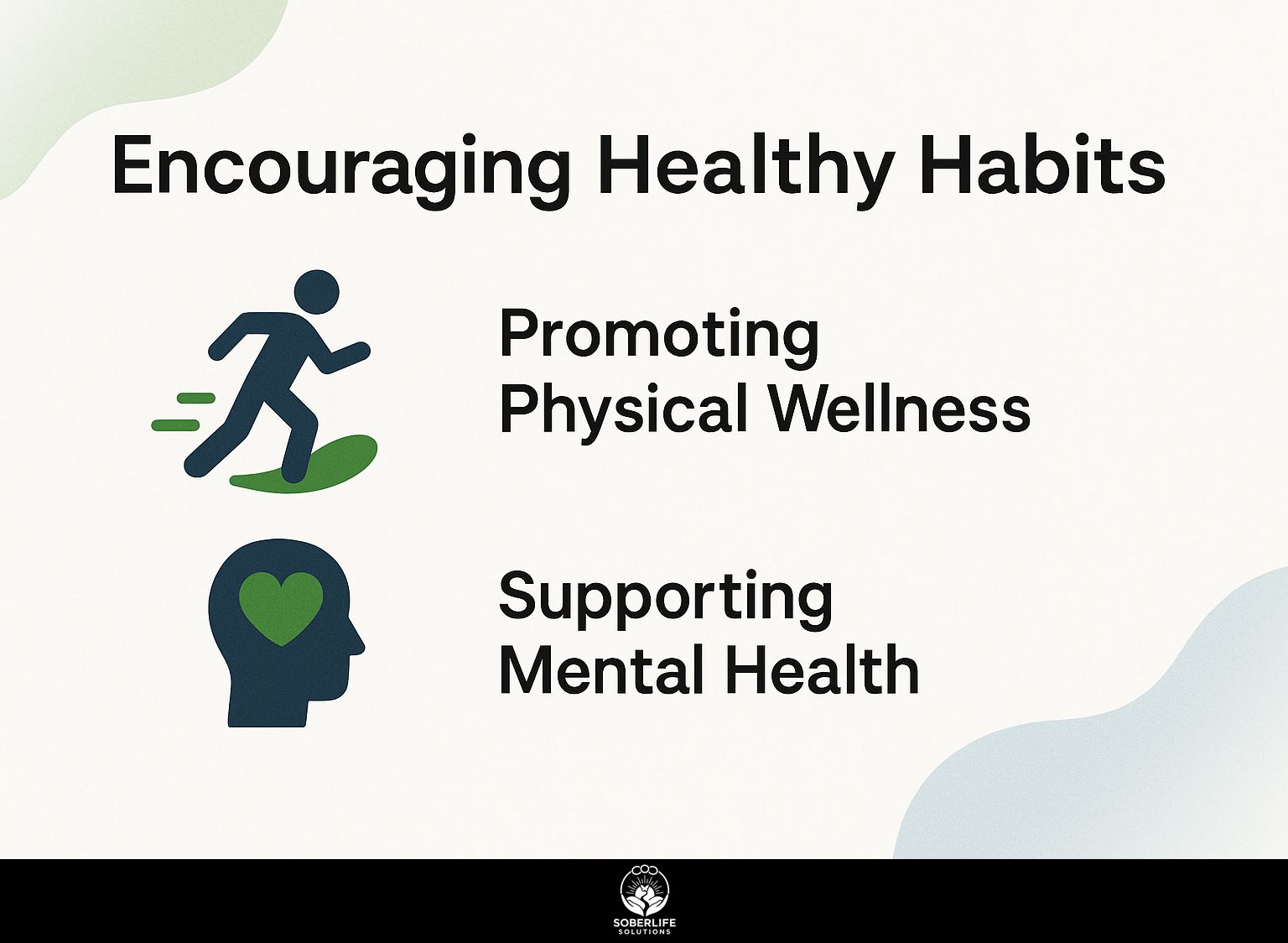
Encouraging healthy habits is important for supporting recovery, addressing both body and mind wellness. This approach aligns with the principles outlined in the benefits of nutrition therapy in alcoholism recovery, which emphasizes the role of balanced nutrition in enhancing mental and physical health.
Promoting Physical Wellness
Promoting physical fitness can aid recovery by strengthening the body and reducing the desire for alcohol.
To help you with your recovery process, try these five practical steps:
- Engage in regular exercise-aim for 30 minutes of activities like walking, yoga, or swimming at least five times a week;
- Maintain a balanced diet rich in fruits, vegetables, whole grains, and lean proteins;
- Stay hydrated by drinking at least eight glasses of water daily;
- Prioritize adequate sleep, targeting 7-9 hours each night;
- Schedule routine health check-ups to monitor progress.
Programs like Couch to 5K can help you start a fitness routine, while meal planners can help you create healthy meal choices.
Supporting Mental Health
Looking after mental health matters as much as looking after physical health during recovery. It helps in dealing with emotional challenges and stress.
To improve mental health, practice mindfulness with meditation or yoga. These activities can lower anxiety and help you concentrate better.
Look into therapy options like Cognitive Behavioral Therapy (CBT) or Dialectical Behavior Therapy (DBT), both effective for managing emotions. According to a study published by ScienceDirect, understanding the mechanisms of CBT can significantly enhance its effectiveness.
Talking openly about emotions helps people connect with each other, and writing in a journal is a helpful way to think about feelings.
To find mental health professionals, consider resources like Psychology Today or TherapyDen, which allow you to search by location, specialty, and insurance coverage.
Setting Boundaries
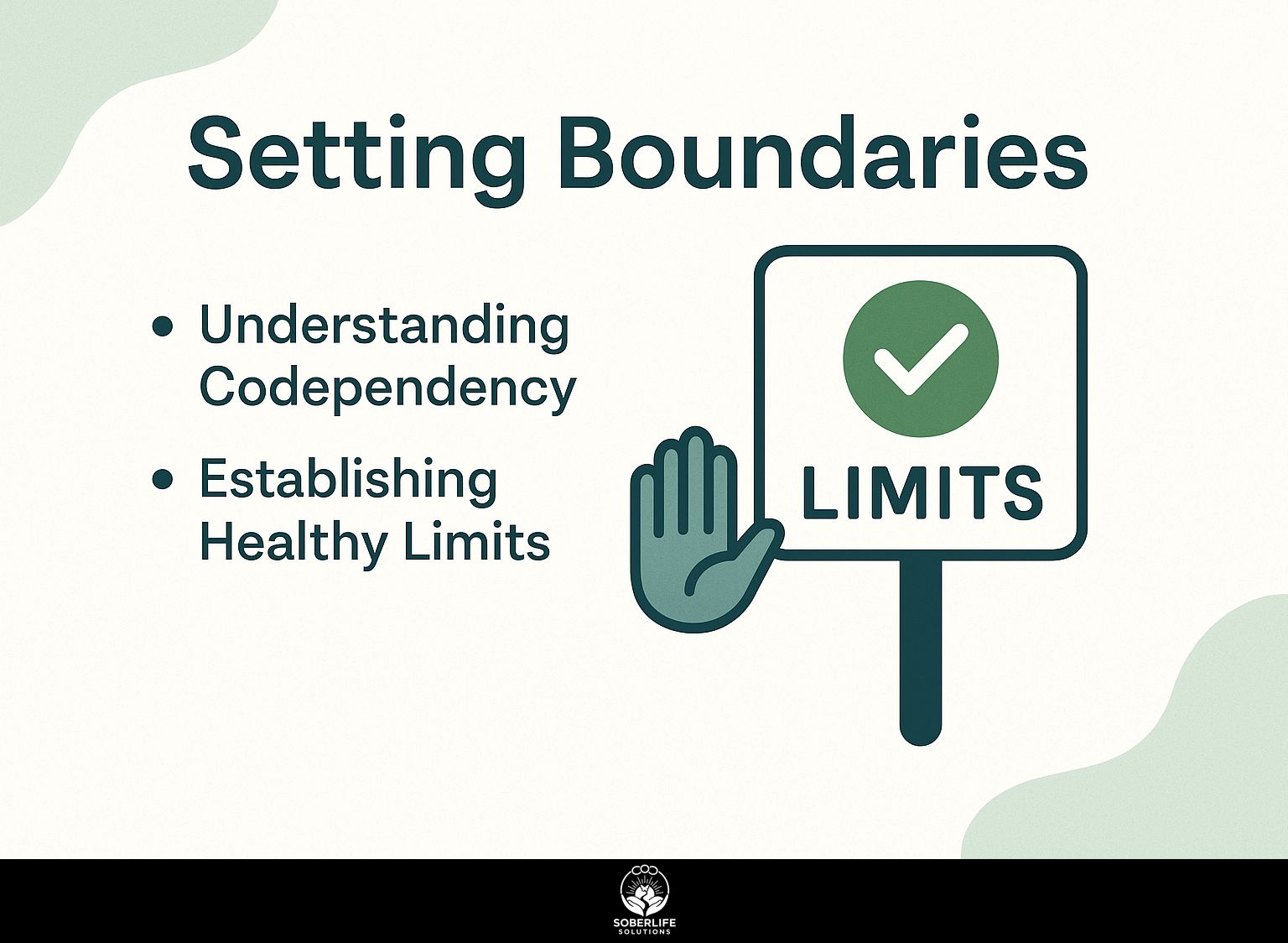
It is important to set boundaries in order to support recovery, ensuring both the supporter and the person recovering remain well. Related insight: Setting boundaries in recovery – Sober Life Solutions provides detailed strategies for effectively establishing these crucial limits.
Understanding Codependency
Knowing about codependency is important for family and friends, as it can block recovery and continue unhealthy patterns.
Codependency often appears in actions such as over-helping others, neglecting personal needs, and focusing too much on others. To break this cycle, start by attending codependency support groups, where you can share experiences and learn from others.
Practicing self-care, like engaging in hobbies or regular exercise, helps regain personal well-being. Express your needs clearly to build better relationships.
For further education, consider books like:
- “Codependent No More” by Melody Beattie
or online resources such as the Codependents Anonymous website.
Establishing Healthy Limits
Establishing healthy limits creates a safe space for recovery, preventing burnout among caregivers and ensuring support remains effective.
To set these boundaries, start by defining acceptable behaviors, such as limiting contact hours or denying additional responsibilities. Clearly communicate these limits to the individuals involved, ensuring they understand the expectations.
Implement consequences for boundary violations, like temporarily stepping back from caregiving duties. Regularly review these boundaries to adjust to changes, and feel free to ask for help from colleagues or experts for advice.
Examples of healthy boundaries include setting specific times for caregiving or restricting emotional involvement in certain situations, which can greatly relieve stress.
Celebrating Milestones
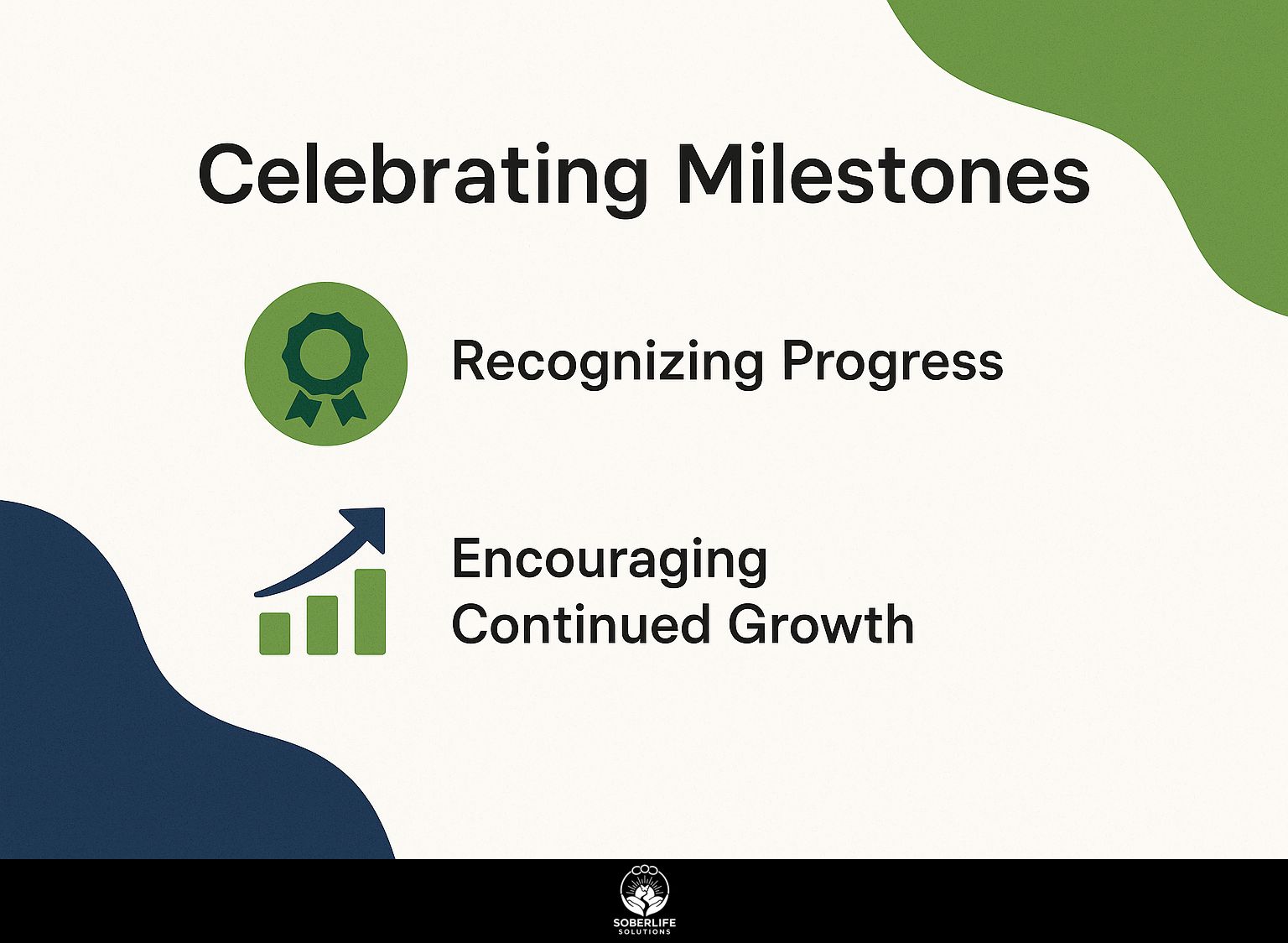
Acknowledging achievements in recovery supports progress and encourages continued efforts toward sobriety.
Recognizing Progress
Notice small improvements to stay motivated and strengthen good habits during recovery.
To effectively celebrate your achievements, consider these five actionable steps.
-
First, keep a journal to document daily or weekly breakthroughs, which helps track your thoughts and feelings over time.
-
Second, create a visual display of your sobriety milestones-like a progress chart or sobriety beads.
-
Third, host small celebrations with friends or family to acknowledge your efforts.
-
Fourth, share your achievements in support groups to motivate others and build community.
-
Use apps such as Sober Grid to monitor your milestones and receive encouragement from peers.
Encouraging Continued Growth
Supporting ongoing growth after recovery is important to stop relapse and build a satisfying life.
To support ongoing growth, individuals in recovery can adopt strategies such as setting new personal goals regularly to maintain focus and motivation.
Learning regularly about addiction and recovery increases awareness and strength.
Joining community service helps form connections and reinforces personal values.
Joining support groups like Alcoholics Anonymous provides important encouragement.
Exploring hobbies can lead to new interests. For example, Eric Clapton turned his love for music into a way to heal and motivate himself.
Frequently Asked Questions
What is alcoholism recovery and how can I help others with it?
Alcoholism recovery is the process of overcoming alcohol addiction and maintaining sobriety. You can help others by giving support, empathy, and resources.
What are some ways I can support someone in alcoholism recovery?
You can offer emotional support and encouragement, help them find resources such as support groups, therapy, or treatment programs, and be a positive influence in their life.
How can I help a loved one who is struggling with alcoholism?
Be patient, open-minded, and avoid judging others. Encourage them to find a professional for help and suggest going with them to their appointments. Show them unconditional love and support.
What should I do if I notice someone in alcoholism recovery is experiencing a relapse?
Approach the situation with empathy and knowledge. Suggest they get help and offer to accompany them to therapy or support group sessions. Remember to be patient and non-judgmental.
What are some resources I can recommend to someone in alcoholism recovery?
You can suggest Alcoholics Anonymous or other support groups, therapy or counseling, and educational materials about alcoholism and recovery. You can also offer to be a listening ear and provide emotional support.
How can I educate myself about alcoholism and recovery in order to better help others?
You can research online, read books or articles, attend support group meetings, and talk to healthcare professionals. Knowing the problems people face in overcoming alcoholism is key to giving effective help.

